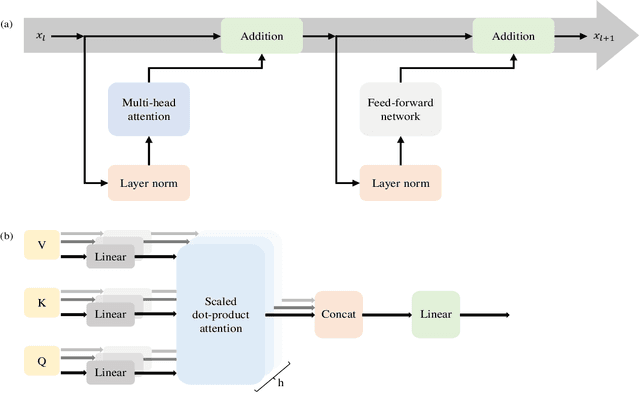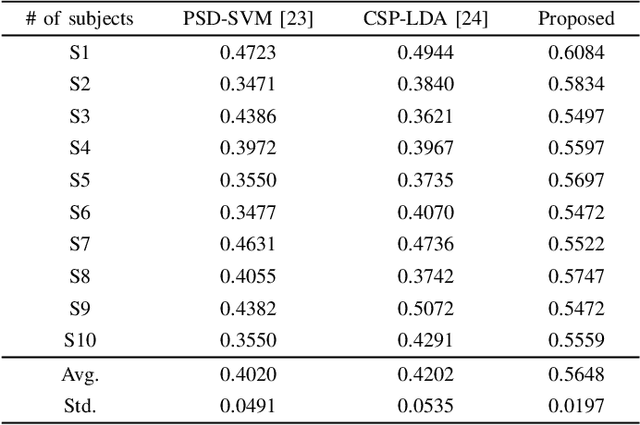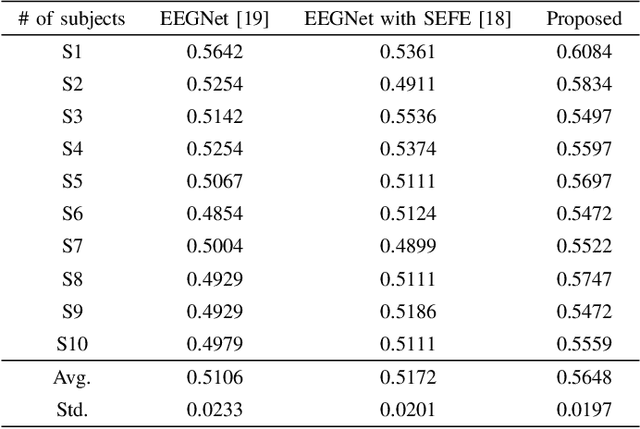Decoding High-level Imagined Speech using Attention-based Deep Neural Networks
Paper and Code
Dec 13, 2021



Brain-computer interface (BCI) is the technology that enables the communication between humans and devices by reflecting status and intentions of humans. When conducting imagined speech, the users imagine the pronunciation as if actually speaking. In the case of decoding imagined speech-based EEG signals, complex task can be conducted more intuitively, but decoding performance is lower than that of other BCI paradigms. We modified our previous model for decoding imagined speech-based EEG signals. Ten subjects participated in the experiment. The average accuracy of our proposed method was 0.5648 for classifying four words. In other words, our proposed method has significant strength in learning local features. Hence, we demonstrated the feasibility of decoding imagined speech-based EEG signals with robust performance.
 Add to Chrome
Add to Chrome Add to Firefox
Add to Firefox Add to Edge
Add to Edge